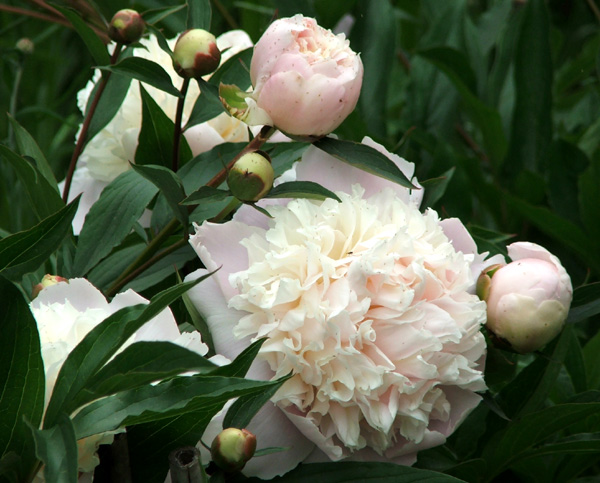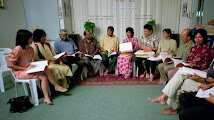This Observer editorial from Guardian.co.uk says it right about what's needed to counter the worldwide trend towards increased religious intolerance and xenophobia (what it calls "the politics of division and fear"):--
Burning the Qur'an: All faiths must fight against the forces of bigotry
We should not tolerate the antics of people such as Pastor Jones
________________________________________
We should not tolerate the antics of people such as Pastor Jones
________________________________________
Those who admire [the American] nation's historical commitment to the rights of man find it distressing to see the burning of holy books and the banning of houses of worship creeping into political discourse.
That distress should be a warning against complacency [in] Britain [, which] is not immune to virulent Islamophobia, as the English Defence League and the British National party prove. Elsewhere in Europe, mainstream politics is struggling to accommodate popular unease about a growing and visible Muslim minority. In France and Spain, this manifests itself as illiberal secularism, with bans on Islamic dress; in Switzerland, it shows up as a prohibition on minarets; and across the Continent opposition to Turkish membership of the EU is laced with anxiety about a mass mingling of Muslims and Christians that might ensue.
...What defines [these trends] is an angry, defensive reaction against an imagined threat to identity: national, secular or Christian.
This is the politics of division and fear and it demands a response, equivalent in passion, from the politics of solidarity and hope.
That distress should be a warning against complacency [in] Britain [, which] is not immune to virulent Islamophobia, as the English Defence League and the British National party prove. Elsewhere in Europe, mainstream politics is struggling to accommodate popular unease about a growing and visible Muslim minority. In France and Spain, this manifests itself as illiberal secularism, with bans on Islamic dress; in Switzerland, it shows up as a prohibition on minarets; and across the Continent opposition to Turkish membership of the EU is laced with anxiety about a mass mingling of Muslims and Christians that might ensue.
...What defines [these trends] is an angry, defensive reaction against an imagined threat to identity: national, secular or Christian.
This is the politics of division and fear and it demands a response, equivalent in passion, from the politics of solidarity and hope.
Read the full article here.
Dicta:
The recrudescence of religious intolerance, of racial animosity, and of patriotic arrogance; the increasing evidences of selfishness, of suspicion, of fear and of fraud; the spread of terrorism, of lawlessness, of drunkenness and of crime; the unquenchable thirst for, and the feverish pursuit after, earthly vanities, riches and pleasures; the weakening of family solidarity; the laxity in parental control; the lapse into luxurious indulgence; the irresponsible attitude towards marriage and the consequent rising tide of divorce; the degeneracy of art and music, the infection of literature, and the corruption of the press... —these appear as the outstanding characteristics of a decadent society, a society that must either be reborn or perish.
(Shoghi Effendi, World Order, 187-88)
Saddened by the continual strife amongst believers of many confessions and wearied of their intolerance towards each other, I discovered in the Bahá'í teaching the real spirit of Christ so often denied and misunderstood: Unity instead of strife, Hope instead of condemnation, Love instead of hate, and a great reassurance for all men.
(Queen Marie of Rumania, Quoted in Shoghi Effendi, World Order, 93)
(Shoghi Effendi, World Order, 187-88)
Saddened by the continual strife amongst believers of many confessions and wearied of their intolerance towards each other, I discovered in the Bahá'í teaching the real spirit of Christ so often denied and misunderstood: Unity instead of strife, Hope instead of condemnation, Love instead of hate, and a great reassurance for all men.
(Queen Marie of Rumania, Quoted in Shoghi Effendi, World Order, 93)
Image source is here.







